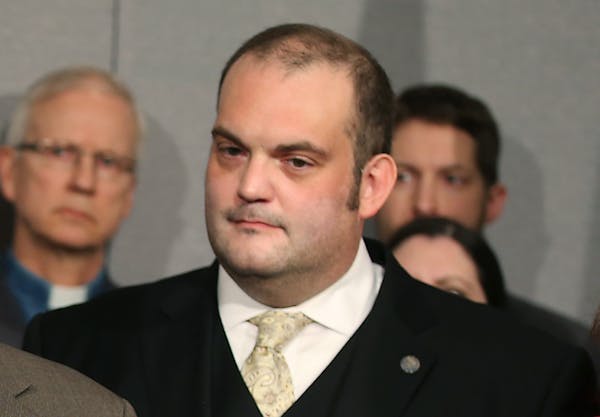WASHINGTON – U.S. Rep. Betty McCollum says she once used a rolled-up newspaper to fend off an unwelcome advance from another member of Congress.
" 'What the hell are you doing? Go away!' " McCollum said Wednesday, describing an encounter years earlier with a former colleague who moved in for an unsolicited hug in the House cloakroom. She said she batted at the advancing congressman with a newspaper as other colleagues looked on and snickered. "I sort of handled it with humor, but it was very clear," McCollum said. "He never bothered me again."
The U.S. House instituted mandatory sexual harassment training this week amid a national wave of women stepping forward to share harassment stories that span industries, eras and political parties.
McCollum, a St. Paul Democrat who has served in Congress since 2001, said she bluntly fended off advances from at least two colleagues over the years.
"There were two members who, I thought, were very inappropriate in the way they were addressing me, [or] thinking that I wanted a hug," she said. Neither is still serving in Congress.
McCollum and her colleagues are pushing for protections for women who might not feel so comfortable dealing with a harasser head-on.
"I'm a coequal and I'll take a back seat to no other member with a voting card here," McCollum said. "Having said that, staff or a lobbyist or a [research] fellow, they're in a much different predicament here."
A bipartisan group of lawmakers introduced legislation Wednesday to overhaul the way Capitol Hill deals with complaints of sexual harassment. Among other things, the legislation would mandate yearly sexual harassment training, support victims and whistleblowers and increase transparency about complaints in the troubled workplace of Capitol Hill.
In one recent Roll Call survey, four out of 10 female congressional staffers reported that they'd been harassed on the job. There are rumors of a "creep list" circulating to warn female staffers away from certain members and staffers, although McCollum says she's never seen it. But she said women have been navigating around workplace predators in the public and private sector for years.
"It was always disturbing. Women would share: 'Avoid this person,' 'make sure you're not alone with that person.' And we would commiserate with each other," said McCollum, who wrote a zero-tolerance sexual harassment policy into her office handbook.
A former member of the Minnesota Legislature, McCollum said she attended mandatory sexual harassment training there in the 1990s. Two decades later, the institution has been rocked by fresh allegations of sexual harassment.
"It's one of the most heinous types of bullying," she said. "We as a society will continue to confront this for quite a while."
Jennifer Brooks • 202-662-7452

Fact check: Walz and Vance made questionable claims during only VP debate

In Tim Walz's home city, opposing groups watch him debate on the national stage

